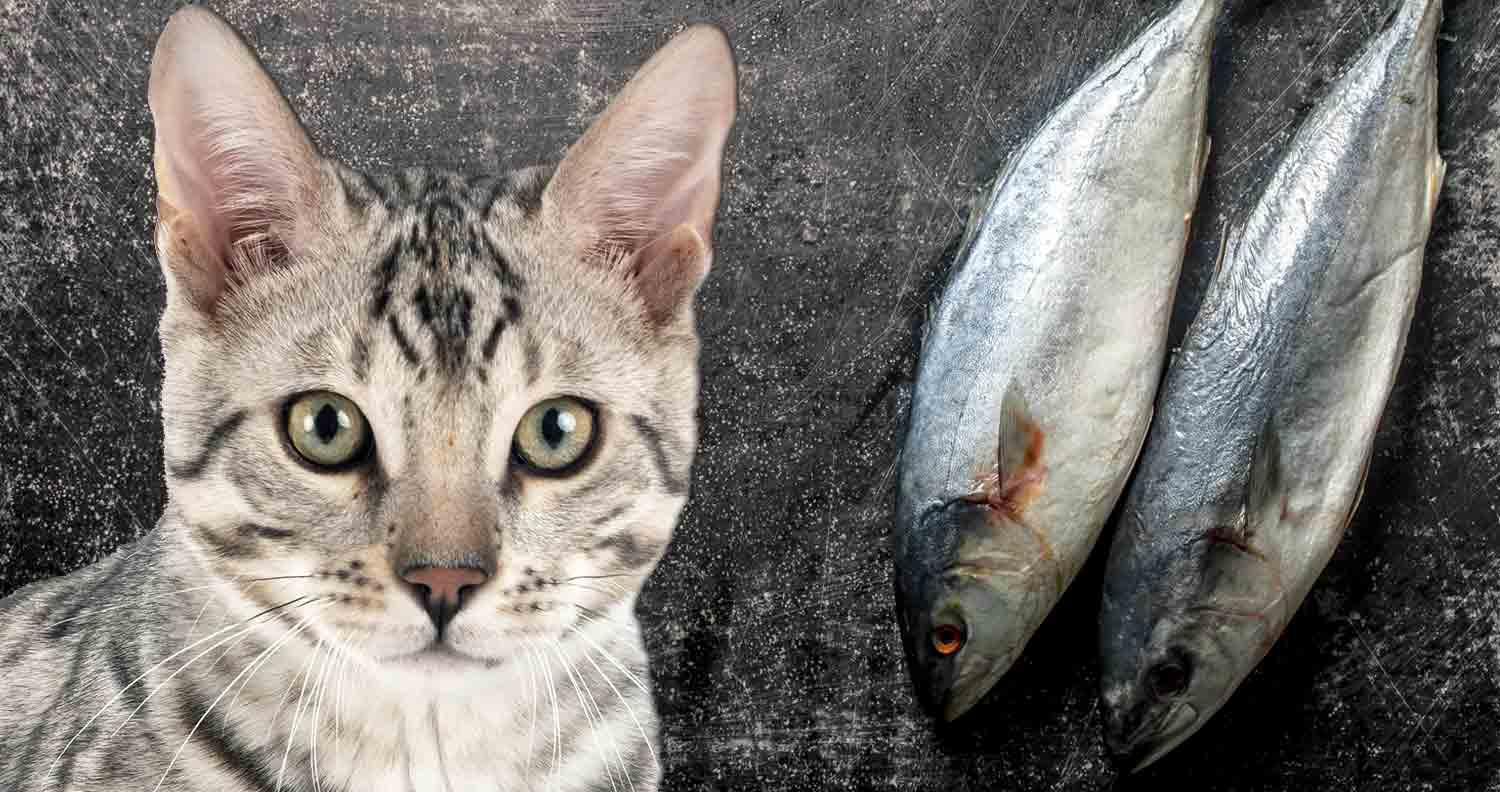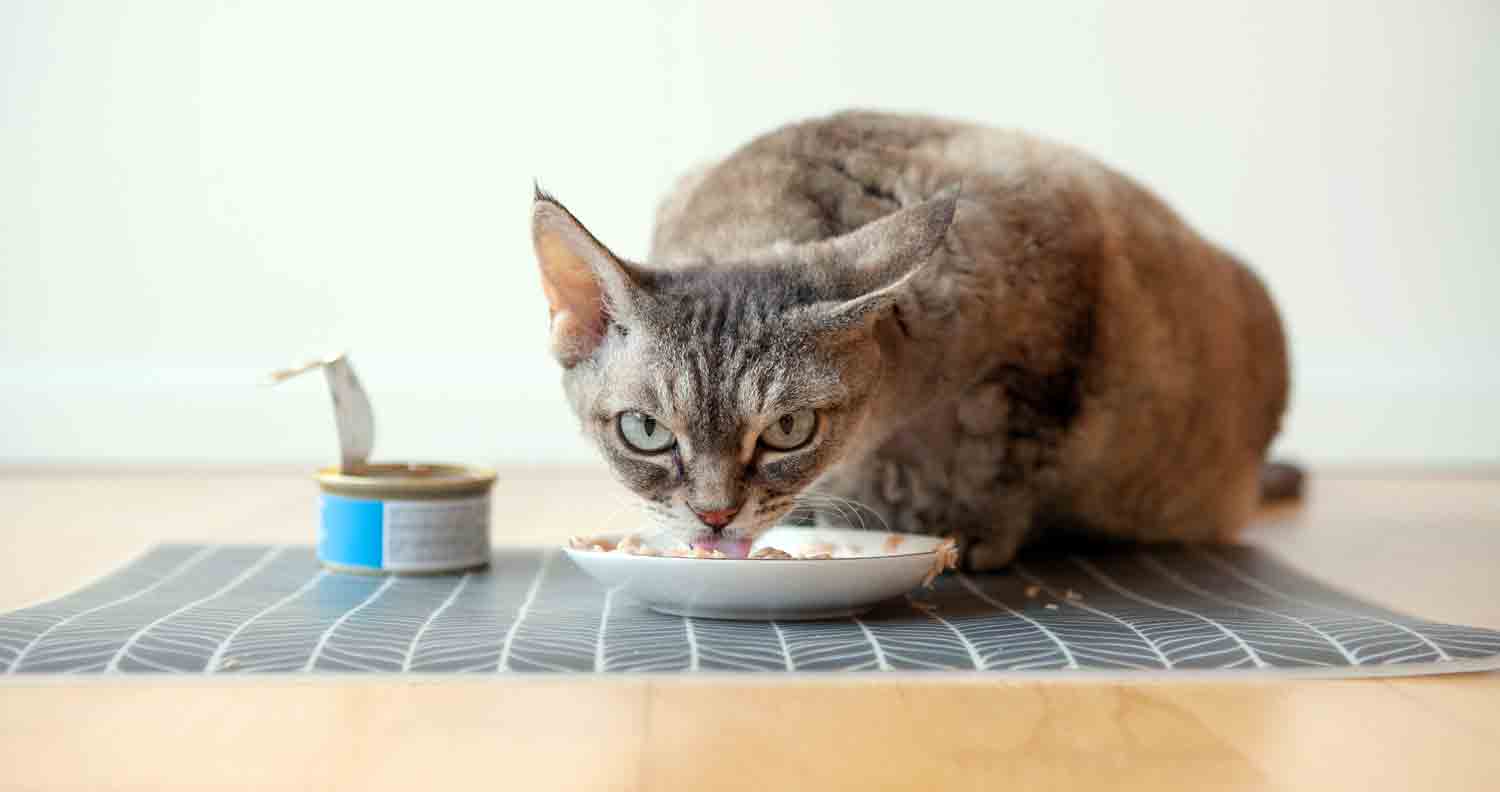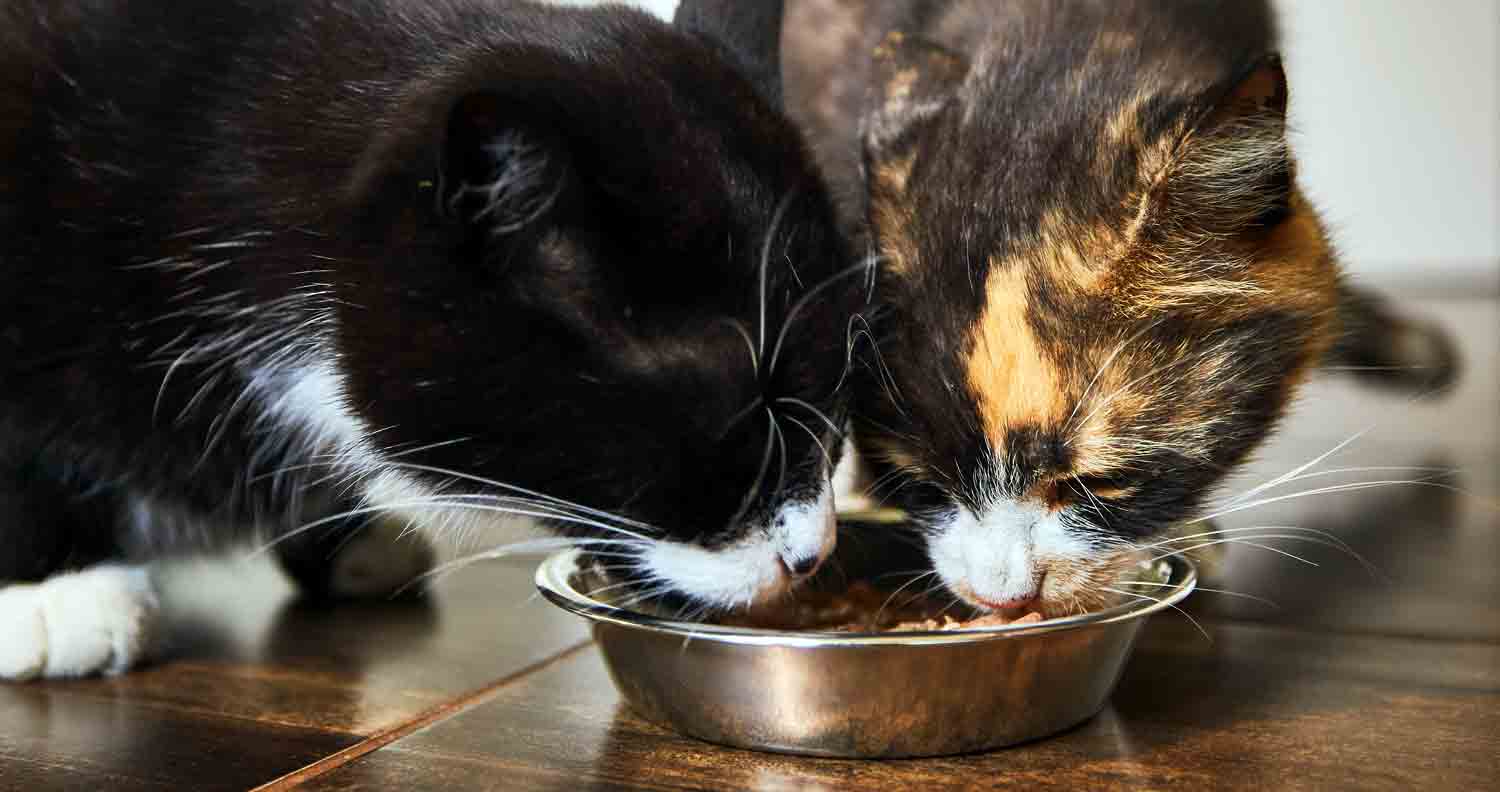Can Cats Eat Tuna? The Fishy Facts
Share:

The image of a cat enjoying a can of tuna is one many of us have seen in pop culture movies and cartoons over the years. However, as many cat owners know – what you see depicted on TV might not be as reliable as you’d think. For instance, we always see kittens lapping up milk on television, but most cats are actually lactose intolerant.
So, can cats eat tuna? Are their associated food allergies linked, or is it actually bad for their health?
The simple answer is yes, your cat can eat tuna in small amounts. Provided you’re absolutely certain your cat isn’t going to swallow any tiny bones in a can of tuna or be exposed to dangerous substances (mercury poisoning), you can give your kitty a little tuna from time to time.
However, there are some important points to be aware of.
Should Cats Eat Tuna?
For most pet parents, the question isn’t whether your feline friend can eat canned tuna, but whether they should be eating this kind of food on a regular basis.
The first thing to remember is that while tuna is a great source of various nutrients, protein, essential fatty acids, omega-3 fatty acids, and minerals for both human consumption and cats, it does lack some nutritional needs and it’s not a complete source of nutrition on its own. Your cat will need additional things in his or her kitty diet which aren’t available in a tin of tuna.
With this in mind, tuna can be an occasional healthy treat within your cat's diet – not their main source of food. Notably, while you might see tuna as a primary ingredient in a lot of different kinds of cat food, there are other substances in these meals which contribute to your cat’s good health.
The biggest issue with feeding your cats tuna and tuna juice is there is quite a lot of unsaturated fat in this food source, and not quite so many vitamins and minerals. You might get Omega 3, but you may not provide your kitty with important substances like taurine by feeding tuna alone.
Additionally, feeding your cat too much tuna could mean they’re less likely to want their other sources of cat food, which could lead to various deficiencies.
The first thing to remember is that while tuna is a great source of various nutrients, protein, essential fatty acids, omega-3 fatty acids, and minerals for both human consumption and cats, it does lack some nutritional needs and it’s not a complete source of nutrition on its own. Your cat will need additional things in his or her diet which aren’t available in a tin of tuna.

Get 30% off and FREE shipping on cat food!
U.S.A. only
To Find out why we recommend chewy.com, click here
For most pet parents, the question isn’t whether your feline friend can eat canned tuna, but whether they should be eating this kind of food on a regular basis.
The first thing to remember is that while tuna is a great source of various nutrients, protein, essential fatty acids, omega-3 fatty acids, and minerals for both human consumption and cats, it does lack some nutritional needs and it’s not a complete source of nutrition on its own. Your cat will need additional things in his or her diet which aren’t available in a tin of tuna.
With this in mind, tuna can be an occasional healthy treat within your cat's diet – not their main source of food. Notably, while you might see tuna as a primary ingredient in a lot of different kinds of cat food, there are other substances in these meals which contribute to your cat’s good or bad health.
The biggest issue with feeding your cats tuna and tuna juice is there is quite a lot of unsaturated fat in this food source, and not quite so many vitamins and minerals. You might get Omega 3, but you may not provide your kitty with important substances like taurine by feeding tuna alone.
Additionally, feeding your cat too much tuna could mean they’re less likely to want their other sources of food, which could lead to various deficiencies.

Is Tuna Dangerous for Cats?
When it comes to answering the question “can cats eat tuna?” it’s crucial to consider any dangers associated with feeding your kitty this form of canned raw fish. The safety of the tuna you feed your kitty will depend on a number of factors, including where you source it. Some cheaper tuna on the market can contain bones and other problematic substances.
Certain tins of tuna can also contain small amounts of mercury. Unwanted substances like mercury are difficult to avoid in your tuna entirely, but there are things you can do to reduce your cat’s mercury intake. For instance, feeding very small amounts of tuna on an irregular basis is less dangerous than giving your kitty tuna all the time.
You can also look into switching to “light tuna”, which comes from a different species of fish than the premium Albacore or white tuna. Do your research into different brands and consider asking your vet or breeder if they have any recommendations for safer products to use.
Other Issues with Feeding Cats Tuna
Most cats will love an opportunity to eat some fresh or tinned tuna every once in a while, but it’s important to be cautious about how much of this fish you give your furry friend. One point to keep in mind is that though most cats will love fish, there are some who will suffer a small allergic reaction to certain substances in tuna. In fact, fish is ranked as one of the most common sources of allergens for cats. It’s best to watch out for any signs of allergies when giving your cats tuna.
If your cat has any of the following symptoms after eating fish, contact your vet:
Outside of allergies, feline obesity can be a common concern when feeding cats tuna. If you give your cats tuna too regularly, you’re giving them access to a lot of extra fat they don’t usually get in their diet. If your furry friend then eats their regular food alongside the tuna (as they should to get the right amount of nutrients), this can lead to weight gain.
Weight gain can be a significant problem for your kitty, causing an increased risk of issues like diabetes, inflammation, and even arthritis.

Cats and Tuna: The Addiction Issue
Another issue that may be problematic when it comes to feeding your cats tuna is the risk of tuna addiction. It might sound odd, but cats can actually form addictive behaviors in regards to tuna. The problem is a lot more common than most people realise, and it usually comes as a result of using tuna as a primary food source for your cat.
If tuna becomes a part of your cat’s routine, they may struggle to feel comfortable without it. Your cats can start to suffer from instances of stress and anxiety, which might lead to troublesome behavior like spraying or scratching. Some cats even refuse to eat other foods entirely, as they wait for their owners to offer tuna instead.
Simply feeding your cat’s addiction isn’t an option here. Tuna can be high in a range of problematic substances, including mineral salts, which cause bladder stones. It’s also lacking essential vitamins like vitamin E, which can lead to problems with vitamin e deficiency and steatitis – a chronic illness.
If you’re concerned your cat might already have an addiction to tuna, it’s best to contact your vet as quickly as possible for advice.
Can You Feed Your Cat Tuna?
A lot of the points made in this article seem to indicate tuna is a dangerous source of food for your cat. However, the reality is that it’s much like the treats we give ourselves as humans. Tuna isn’t the most nutritious food for your cat, but it’s not necessarily dangerous, provided you’re careful about how you give your kitty tuna.
Remember to only offer tuna in moderation, check with your vet if it leads to negative side effects (such as sneezing or vomiting), and avoid using tuna as a replacement for your cat’s standard diet.

Get 30% off and FREE shipping on cat supplies!
U.S.A only
To Find out why we recommend chewy.com, click here
Affiliate disclosure : We Love Cats and Kittens is a participant in several affiliate programs including the Amazon Services LLC Associates Program, and the Chewy affiliate program. These are affiliate advertising programs designed to provide a means for sites to earn advertising fees by advertising and linking to products on their sites. If you click on links in our blog posts and articles we may be paid a commission.
Share:

